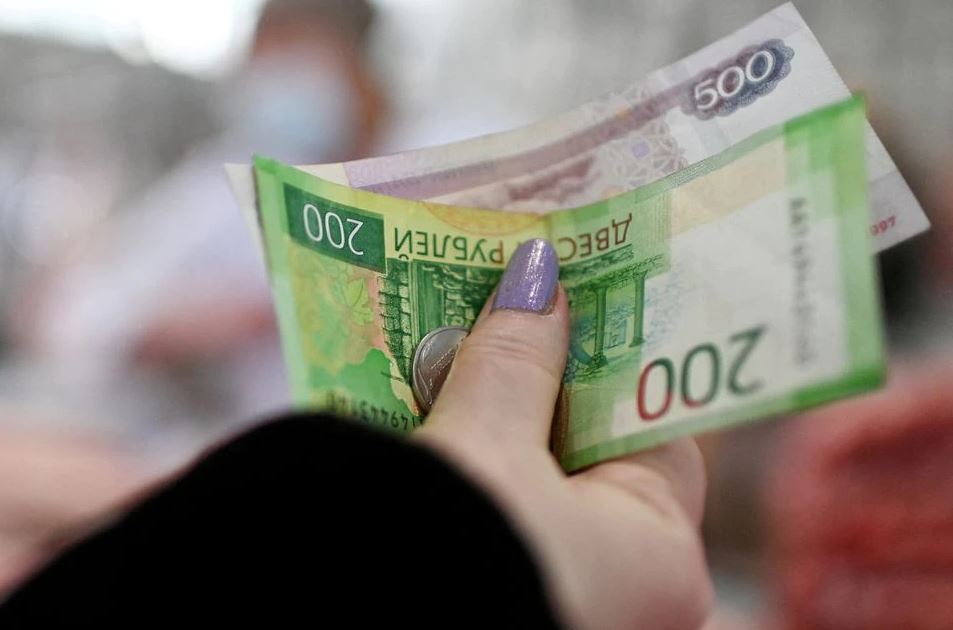Western allies’ sanctions against Russia have started to blowback in the form of large potential losses for their own banks, companies and investors, often in unexpected ways. In the past, such fires have been precursors to financial crises.
But some market participants say they aren’t seeing panic in the market, at least not yet.
“We haven’t had any of those ‘holy shit’ phone calls,” said David Schamis, co-founder of financial services-focused private equity firm Atlas Merchant Capital, while heading out of town for his daughter’s hockey tournament over the weekend.
“There is so much more capital in the system. Russia is not that big. Risk management is better,” Schamis said, comparing the situation now to the financial crisis in 2008 when he had a front-row seat as someone with capital to invest.
Indeed, banks have fat buffers this time around. In a sign of how much extra cash is sitting around with nowhere to go, the Federal Reserve said on Friday financial institutions placed more than $1.4 trillion overnight with it for almost no returns. It shows there is enough capital in the financial system to absorb losses from the Ukrainian invasion.
Still, the sinkhole of potential losses is rapidly growing.
From Societe Generale SA (SOGN.PA) and BP Plc in Europe to Citigroup Inc (C.N) in the United States, Western companies have tallied up billions of dollars in exposure to Russia, money that they could lose. By one major US bank’s estimate, the West’s exposure through its companies as well as its dealings with the Russian central bank could be around $400 billion.
The shock is being felt in unexpected places. In Germany, the debt office has had to increase the size of a bond to ease conditions in eurozone overnight lending markets, a crucial source of credit for banks and other financial institutions.
Bunds are used as collateral in the market but there has been a shortage. The Germans have said they suspect some of the bonds are held by sanctioned entities that cannot trade.
In Russia, internet companies Ozon Holdings Plc (OZON.O) and Yandex NV (YNDX.O)could face nearly $2 billion in unexpected bills after trading in their US listed shares was suspended after the sanctions. That could trigger a clause in their debt agreements that makes some of their bonds redeemable. Yandex said it doesn’t have the money to pay investors.
The disparate nature and the geographical spread of these fires are some of the hallmarks of financial contagion, the idea that losses can quickly barrel through a deeply interconnected system in ways that no one can fully predict. At some point as losses spread, market participants panic and withdraw, freezing credit and precipitating a broader financial crisis.
Former Commodity Futures Trading Commission Chairman Timothy Massad was deeply involved as a Treasury official in the US government’s handling of the 2008 financial crisis. Echoing Schamis, he believes that the system is well able to absorb the shock and he hasn’t noticed anything that raises serious concerns about financial stability.
Even so, the situation is rapidly evolving. “I don’t think this is a stable situation,” said Massad. “What concerns me the most is how long this goes on and whether something happens in the war that triggers a much bigger shock or triggers panic.”
The attack Friday on Ukraine’s nuclear plant was troubling, he noted.
Some signs of stress have started to appear in markets, with investors shedding riskier assets. Banks are getting nervous about lending to each other and hoarding dollars, which are getting more expensive for foreigners to procure. But these indicators are well below the peaks seen during full-blown crises and the market’s plumbing is holding up.
Russian assets are in purgatory. Moscow abruptly ordered brokers to reject ‘sell’ orders by foreigners for Russian securities on Feb. 28. That meant any orders to sell rouble-denominated Russian government bonds that had not settled by then were stuck. By one estimate, hundreds of millions of dollars’ worth of proceeds might be frozen, but even then market participants say the hit to portfolios is not large enough.
For now, the word on the Street is more of confusion than panic. People are working through what the raft of sanctions against Russian banks, assets and individuals means for their dealings and holdings, market participants say.
“The danger comes from the fact that you have long intermediation chains that make it difficult to know what exactly the exposure and the risks are,” Massad says.







Click here to change your cookie preferences